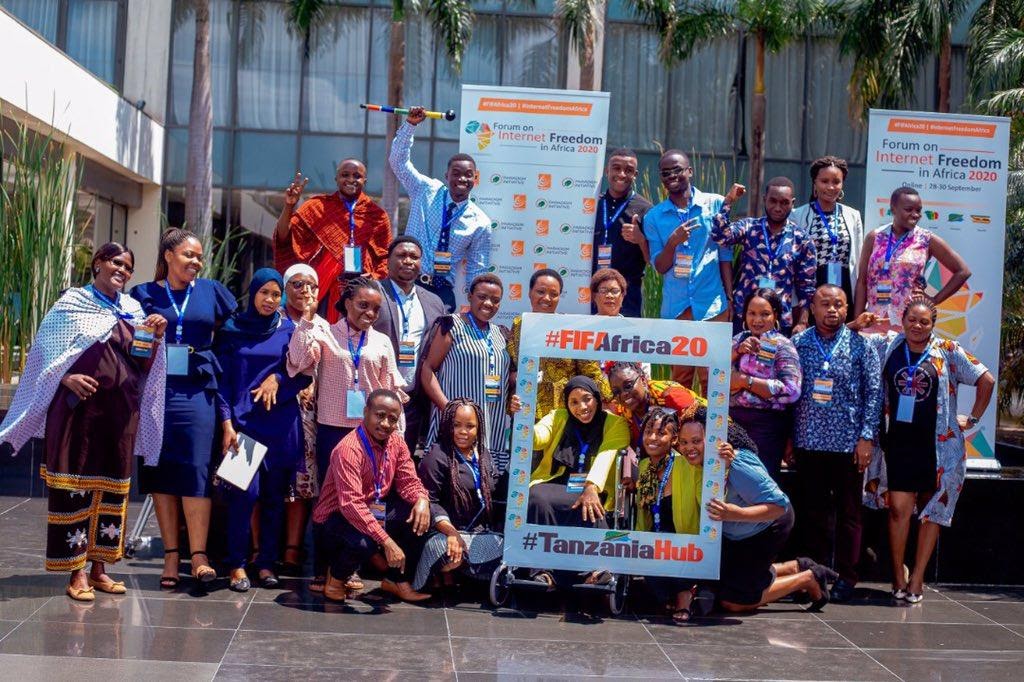
Pushing back against digital authoritarianism in Africa
In 2007, the Guinean government became the first in sub-Saharan Africa to switch off the internet during protests against former president Lansana Conté. Over a decade later, in 2020, Ethiopia carried out a digital blackout multiple times in the face of political dissent and protests. Indeed, according to the State of Internet Freedom in Africa 2020, it is increasingly common for governments to shut down the entire internet or telecommunications during protests, political upheavals or other moments of disruptive change.
The number of intentional internet shutdowns by African governments rose to 25 in 2020 from 21 in 2019, according to the report, which was conducted by the Collaboration on International ICT Policy for East and Southern Africa (CIPESA), an SRT grantee. Algeria, Ethiopia and Sudan were the worst-affected countries. And it doesn’t end with digital blackouts. The report detailed many measures that governments have used to stifle people’s ability to organise, voice opinions and participate in governance online.
“Controlling citizens’ use of digital communications undermines democracy and cements authoritarians’ hold on political power,” said Ashnah Kalemera, Programme Manager at CIPESA. “Measures taken by some governments in the name of stopping the spread of Covid-19 actually worsened the state of digital rights and deepened the democracy deficit in those countries.”
The biggest threats to digital rights in Africa in 2020, according to Reuters, were internet blackouts and social media crackdowns, mobile loans and debts, cyber attacks, surveillance, and the digital divide. During the pandemic, tens of millions of children on the continent have been unable to learn remotely due to a lack of internet access.
Digital rights challenges like these led CIPESA to form the Africa Digital Rights Fund (ADRF) in 2019. The fund aims to influence policy and practice that protects digital rights, by supporting advocacy, skills development, and movement building. By the end of 2020, ADRF had awarded 33 initiatives with rapid response and flexible grants totalling USD 355,000.

Participants at an ADRF-supported training in Somalia. ©WIMISOM/CIPESA
With ADRF funding, three Somali initiatives – Digital Shelter, the Somaliland Journalists Association, and the Women in Media in Somalia – together trained 235 human rights defenders, media practitioners and activists on online safety and security. They also convened forums with people from government, business, law enforcement and civil society to raise awareness of the need for policies to protect digital rights. A Tunis-based grantee created a podcast called Digitally Yours on the impact of Covid-19 on digital rights in the Maghreb. ADRF grantees promoted regulation and consumer protection in the digital financial sector in order to achieve the promise of digital inclusion in Kenya, and promoteddata protection and privacy in Namibia.
ADRF grantees pointed out the importance of native language content in communicating about the coronavirus and published articles on identity-driven hate speech, misinformation and harassment inAlgeria, Cameroon, Ethiopia, Nigeria, Sudan, Tunisia, andUganda. ADRF supported reports on data rights and information access laws in Kenya and Rwanda, and a toolkit by EndCode to help civil society organisations in Botswana, Nigeria and Uganda advocate for public access to information during a pandemic.
ADRF also arranged for Data4Change to provide data literacy and advocacy training to grantees such as the Mozambique Disabled Person’s Organisation (FAMOD), which conducted a campaign on web accessibility, and Digital Shelter, which ran a campaign on women’s online safety in Somalia.
Overall, the fund has supported activities to advance digital rights in 35 countries, more than half of the countries on the continent, while building a community and network for learning and exchange.
“The fund has had a catalysing effect in the field at a critical time,” said Kalemera. “The Covid-19 pandemic has reinforced the importance of digital rights and access to safe and factual information on the continent, and we are stronger going forward.”
Return to grantee stories
